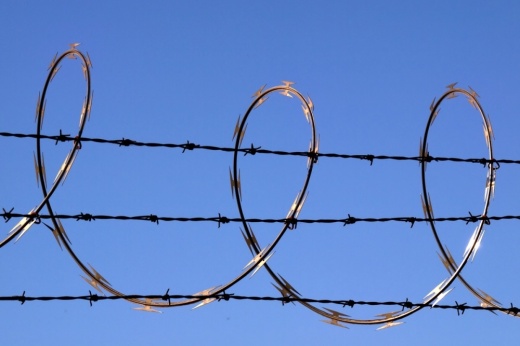The U.S. Supreme Court has indefinitely blocked a Texas law that would allow police to arrest people suspected of illegally entering the country.
Just after 4 p.m. March 18, Justice Samuel Alito issued an order halting Senate Bill 4 from taking effect “pending further order” from the nation’s highest court while an appeals court considers whether the law is constitutional.
What you need to know
SB 4, one of Gov. Greg Abbott’s top priorities, is Texas’ latest attempt to curb the flow of migration into the state.
The controversial law would give Texas unprecedented power to enforce immigration restrictions and deport migrants—these roles have historically been reserved for the federal government.
Texas lawmakers approved SB 4 last fall. The Biden administration and immigrant rights advocates later sued Texas, arguing the law is unconstitutional because it undermines the federal government’s immigration authority.
Abbott and other top Texas Republicans have said SB 4 is necessary to stop an “invasion” by migrants and drug cartels.
"SB 4 would have served as the strongest border security law in the country, but now that tool has been robbed from our toolbox to America’s further detriment," Texas House Speaker Dade Phelan said in a statement following the court order. "The state looks forward to seeing it ultimately upheld and go into effect."
The details
Under SB 4, law enforcement officers across Texas could arrest people they believe crossed the border without the required documentation. The law prevents migrants from being arrested at schools, places of religious worship or medical facilities.
The law would create a state misdemeanor—punishable by up to six months in jail or a $2,000 fine—for illegally entering Texas from another country. Repeat offenders would face felony charges.
Judges would have the authority to order migrants to leave the country. Police could then transport migrants to ports of entry along the border, but could not force them to cross.
How we got here
SB 4 was originally scheduled to take effect March 5. But on Feb. 29, U.S. District Judge David Ezra temporarily blocked the law, declaring it “patently unconstitutional.” Ezra said the federal government would “suffer irreparable harm” if states were allowed to enforce their own immigration restrictions.
Texas quickly appealed to the 5th U.S. Circuit Court of Appeals, which scheduled a hearing over the law's constitutionality for April 3.
"Since day one, we’ve highlighted how blatantly unconstitutional SB 4 is," the Mexican American Legislative Caucus of Texas said in a post on X, formerly Twitter. "This reckless and irresponsible attempt by the state to seize control and circumvent 150 years of federal immigration law was a new low for Texas. While SB 4 continues to have a long legal battle ahead, millions of mixed-status Texan families can breathe a sigh of relief."
Put in perspective
It is unclear how the law would impact migration flows. Last year, Texas began installing large buoys in the Rio Grande and razor wire on riverbanks in effor-ts to reduce unauthorized immigration.
The state also took control of Shelby Park, a 47-acre public park in the border community of Eagle Pass, in January. Eagle Pass Mayor Rolando Salinas said he did not agree to the state takeover.
On Feb. 16, Abbott announced Texas would begin constructing a military base camp in Eagle Pass. The 80-acre facility will house between 1,800-2,300 Texas National Guard members, many of whom have been living in hotels across the region.
Abbott said Texas was "still using its authority" to arrest migrants for trespassing and other offenses in a statement posted to X.
"We continue building the wall, [using the Texas National Guard] to erect razor wire barriers to repel migrants and buoys remain in [the] river," Abbott wrote.
It could cost millions of dollars to enforce SB 4 at the local level, Community Impact previously reported. In October, El Paso County leaders told a Texas House committee they anticipated roughly 8,000 new arrests each year under the law. It would cost the border county at least $186 million annually to jail undocumented migrants, officials said.
Travis County leaders said they expected to spend at least $9 million annually to enforce SB 4.





